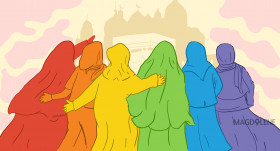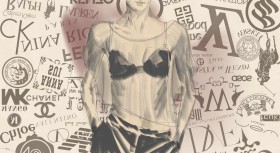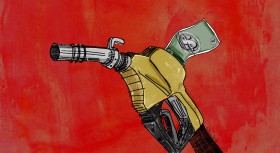When I was a child and I had very little idea about religion, even my own religion. I thought of Hari Raya (religious holidays) simply as the day when I got to be with my big family, when aunties and uncles told me their childhood stories, cousins exchanged toys and laughs and sometimes tears, and grandmas and grandpas repeatedly remarked how much bigger I was than the last time they had seen me – which usually ended up in a long talk about when exactly was the last time they saw me.
The last time they saw me could easily be determined by a simple pattern. If it was Christmas, then the last time we saw each other was on Eid al-Fitr or Lebaran, and if it was on Lebaran, then the last time we met was on Christmas. Of course there would be some exceptions, those rare times when we saw each other at a relative’s wedding reception.
For the young me, all Hari Raya, whether Lebaran or Christmas, were all the same. It meant family day. What mattered most on that day was how we spent it with our loved ones. It is an excuse for everyone to be home, wherever home is.
Hari Raya gives us room for forgiveness, knowing that no matter how bad we have been this year, we can always start anew again. Hari Raya gives us room for acceptance. To this day, all Hari Raya seem the same to me. Just as Muslim families bond by making ketupat, Christian families decorate their Christmas tree with their loved ones. Muslim families find peace by humming the takbir , while Christians families sing their praises to God.
One of my uncles converted from Catholicism to Islam and became a much respected man at the mosque, as he never hesitated to sweep the floor and dust the mosque’s cabinets. My other uncle (his brother) remains a Catholic, baptized his children and raised a devout family. Regardless of their religions, they respected and cared for each other. My Muslim uncle passed away last year and my Catholic uncle was among those who carried his remains on the shoulder and dug his grave. He wept the death of his brother.
One of my grandmas was once Catholic, but she has not been practicing for a while. None of us asks her why, because it’s between her and God and we have no right to be involved in that relationship. Her children have all converted to Islam; one of them is growing a beard and now married to a woman with a burqa. He still calls her Ibu (mother).
My Mom started wearing hijab in the fasting month in late 2008 and she has never removed it ever since. But she is still the same person she was. She lives her life the same say. My other grandma wore hijab in her late 50s, and did not make her any less or more influential in her community.
Both of them made me understand that wearing hijab doesn’t make one smarter or prettier or better. At the same time, wearing hijab also doesn’t make one dumber or uglier or any worse either. Wearing hijab and the quality of self are two very different concepts and society really needs to understand how to separate them.
I know Muslims who are good people, and one of them is a 90 year-old Grandma who trembled on her Ied salat and shed tears of happiness seeing her whole bloodlines gather together in her old, big house. On those days, empty bedrooms get cleaned up, beds made up. She would delight in seeing her grandchildren waiting for their turns to take a bath, and in seeing the dining table full of dishes.
I know Catholics and Christians who are good people – some of them are my uncles and aunties who, with their children, once a year return to the old, big house they were raised in.
Hari Raya is about living the good moments of the present, while being nostalgic for the good moments of the past. Hari Raya is about love. So let’s not hate. Let’s celebrate.
Vita Kartika is a Communication Science student at Universitas Airlangga who believes in life-long education and the power of process. She writes and criticizes about current issues on semanticsatiation.blogspot.com. She’s @vitdgaf on each and every social media account.








Comments